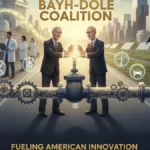It’s the end of an era in Los Angeles, where the city’s Metro system reports that it has retired its last diesel bus.
This reportedly makes Metro the world’s first major transit agency to operate a fleet on 100% clean fuel vehicles – almost entirely compressed natural gas which, while not perfect, is at least a cleaner step in the right direction.
This marks a significant achievement for the second largest public transit bus operation in the United States, with buses providing nearly 400 million rides a year and logging in just under 1.5 billion miles annually in notoriously smog-filled Los Angeles County.
It stems from a 1993 decision by Metro directors to only order clean air vehicles, creating a total fleet, to date, comprised of 2,221 gas buses, one electric and six gasoline-electric hybrid buses. All of these have logged a collective 1 billion clean air miles.

Mile for mile, it is said natural gas fuel costs beat those of diesel by about 50%.
Buses that run on this cleaner fuel source, however, do cost about 10 to 15% more to operate than standard diesel engine buses, largely due to increased maintenance costs.
It is believed though that the benefits to public health are worth the cost, as noted by Jane Warner, President and CEO for the American Lung Association in California, who said, in a statement, “By acquiring cleaner fueled buses, Metro is helping to address the region’s serious pollution problems and reduce smog related illnesses and deaths.”
By making this switch, Metro reportedly avoids emitting nearly 300,000 pounds of greenhouse gas emissions per day.
Other Southern California transit operators that have made the switch to compressed natural gas for some or all of their fleet include Foothill Transit, Orange County Transportation Authority and SunLine Transit in the Coachella Valley.






